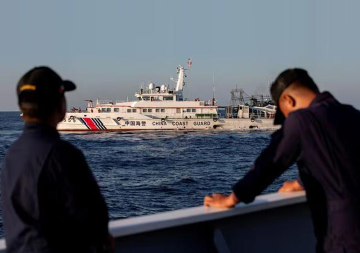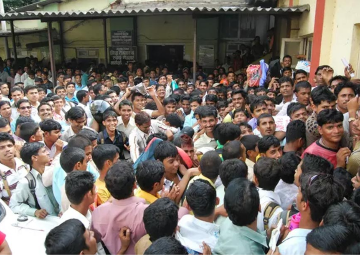Kazakhstan aspires for economic cooperation between China and Europe, and connectivity within itself and with its neighbours.

Kazakhstan is working with its partners in Russia in order to establish the Eurasian commodities market. It seeks to create a transparent price determination mechanism for commodities such as agricultural products and metals and increase the interest of international investors in such commodities.
This was revealed during an interaction with a visiting delegation from the Astana International Finance Center (AIFC), organised by ORF Mumbai. The delegation included Ambassador of Kazakhstan to India, Bulat Sarsenbayev, Chief Global Markets Officer, AIFC, Amina Turgulova, Acting Head, Business Development Group, AIFC, Nursultan Serikbay, and Director, Institute of Asian Studies, Sultan Akimbekov.
The Exchange is focusing on the Belt and Road initiative and the Eurasian Economic Union (EEU), which is a large market of around 180 million people accounting for roughly $ 4 trillion of GDP. There have been agreements among member countries of the EEU about harmonisation of their exchange operations. According to these agreements, their super national regulator will be based in Nur-Sultan by 2025.
The resilience which the financial system exhibited during the crisis earned it respect from the western world which had previously nudged India to move fast in opening its capital account and to relax its regulatory constraints.
Nur-Sultan spoke about how the AIFC has adopted more than 60 regulations based on the English common law and the highest international standards. Half of these regulations govern the financial sector namely, banking, capital markets, insurance, reinsurance and Islamic finance. The Centre is working closely with its counterparties in Kazakhstan and in countries such as Uzbekistan, Azerbaijan to obtain projects that need investment so that they can be accessed by potential investors of the Centre.
The round-table discussion was moderated by Akshay Mathur, Director of Research, and Fellow of Geo-Economics, Gateway House. He brought to attention the transition that took place post the 2008-2010 transatlantic financial crisis in the world’s perception of India’s capital markets and financial regulatory regime. The resilience which the financial system exhibited during the crisis earned it respect from the western world which had previously nudged India to move fast in opening its capital account and to relax its regulatory constraints. Yet, he did acknowledge that the banking sector has certain weaknesses due to the undue political interference in banking operation.
Mathur observed that the concept of an exchange or a financial centre is constantly evolving and no longer remains confined to being a physical entity. This development entails important ramifications which stakeholders need to be cognizant of and cope with. He also hoped that the AIFC will not only collaborate with Indian financial institutions and regulators but also with think tanks as the financial space further evolves giving rise to important research questions.
Sultan Akimbekov said that, as a landlocked nation, Kazakhstan is ideally placed to become a crossroad in Central Asia that re-establishes trans-continental trade routes. Kazakhstan aspires for economic cooperation between China and Europe and connectivity within itself and with its neighbours. He recognised that the International North-South Transport Corridor, the Trans-Afghan Pipeline etc. will face several hurdles, including several regional conflicts and geopolitical risks. An instance of this is India’s attempt to establish a corridor linking Gujarat and West Bengal to Kazakhstan and Russia, notwithstanding sanctions on Iran.
He explained that the idea of the development of a region translates into the establishment of a new economic region, opening up a large market for goods and services. All nations can benefit from access to such a market. In this context, the AIFC represents the prospects of financial connectivity with India and other nations.
Ambassador Bulat Sarsenbayev highlighted how tourism and trade have flourished between India and Kazakhstan. In 2014, the trade between Kazakhstan and India stood at USD 461 million. Today, having tripled within four years, it stands at USD 1.2 billion dollars. Similarly, tourists from India have increased exponentially from 6,000 in 2014 to 25,000 in the current period. Air connectivity has also improved significantly in the recent years, he remarked.
Through its global partnerships, AIFC aims to create an ecosystem that is convenient for investors and attract innovative and diverse investment instruments.
The optimum level of trade between India and Kazakhstan is being obstructed by costly logistics following Kazakhstan being a land-locked country. This problem is sought to be solved by the International North-South Transport corridor. Efforts of cooperation have begun in the areas of space and IT as well. The AIFC started two years ago, seeks to connect with Indian companies operating in the financial sector, he pointed out.
According to the ambassador, Kazakhstan is specially placed for a promising partnership with India. The nation is not dependent on Indian aid. Kazakhstan has already made investments in the National Railway Company of India and the Exim Bank of India. Although, at different levels of development, the historical connect and linguistic similarities between the nations too provide the basis for solid collaboration.
Earlier, Ayjaz Wani, Research Fellow, ORF, initiated the round-table by highlighting the prospects for collaboration between India and Kazakhstan. He threw light upon the longstanding relationship between India and Kazakhstan which, he said, is based on an extensive exchange of culture, ideas and commerce, mainly facilitated through the Silk Route. According to him, with all the efforts that have been made at strengthening bilateral ties, the future of India and Kazakhstan relations looks promising.
Amina Turgulova identified the AIFC’s thrust areas of operation -- capital markets development, asset management, private banking, Islamic finance, financial technologies and green finance.
Through its global partnerships, AIFC aims to create an ecosystem that is convenient for investors and attract innovative and diverse investment instruments. The AIX is already operating in four different currencies -- Euros, USD, Tenge, and Swiss Francs, while new currencies are going to be introduced in the Exchange. A preferential tax regime has been put in place for the participants of the Centre and no income tax is levied on the foreign employees. There is also no tax on capital gains or dividends earned from the trade at the AIFC. The Centre has a simplified Visa regime and does not require a working permit from international workers who want to work with it.
Efforts are also on to develop the capital markets to reach the emergent market levels on the MSCI Index. Measures have been envisioned to make securities Euro-clearable which means that they will be settled in the Euroclear bank in Belgium, and international investors who are already members of this bank will have direct access to them in 54 different currencies. The main goal of the Ministry of Finance of Kazakhstan is to be able to place domestic securities in Tenge and settle it in Euroclear.
This report is compiled by Dr Renita D’Souza, Associate Fellow, with inputs from Unnati Patel and Shruti Mukherjee, interns at ORF Mumbai
The views expressed above belong to the author(s). ORF research and analyses now available on Telegram! Click here to access our curated content — blogs, longforms and interviews.




 PREV
PREV

